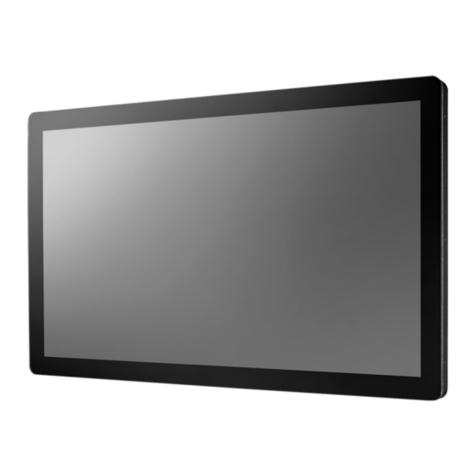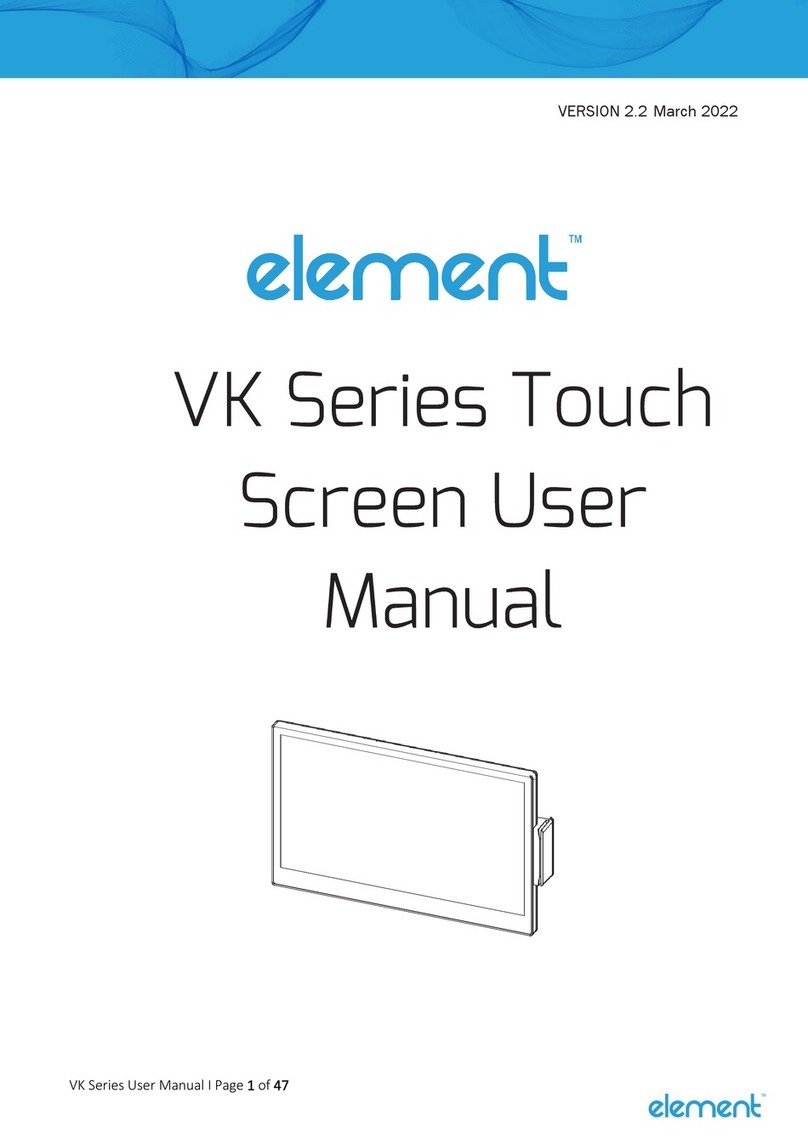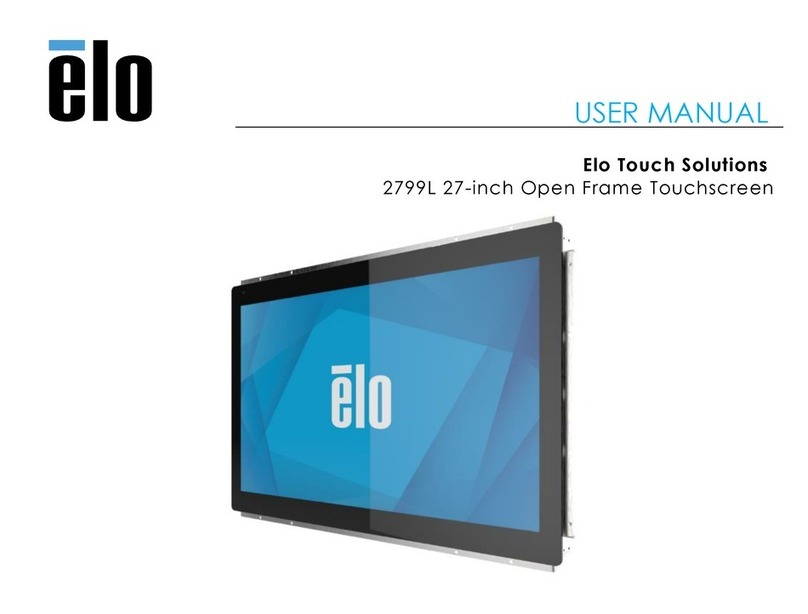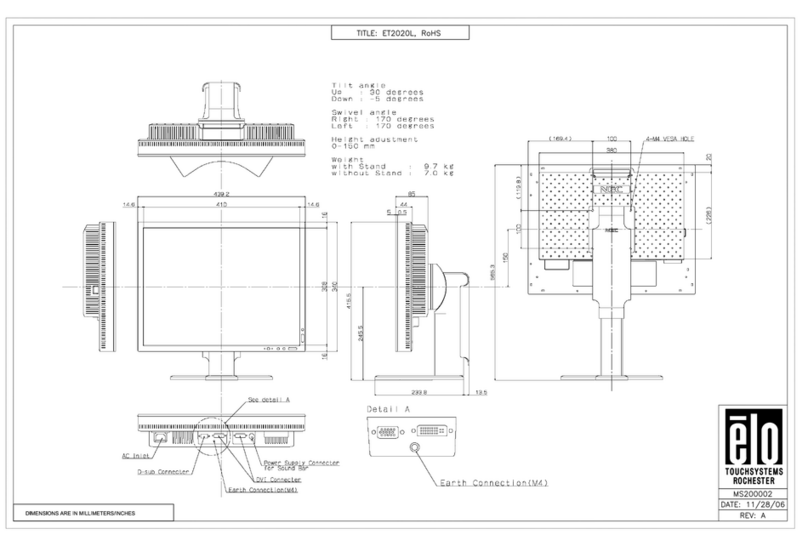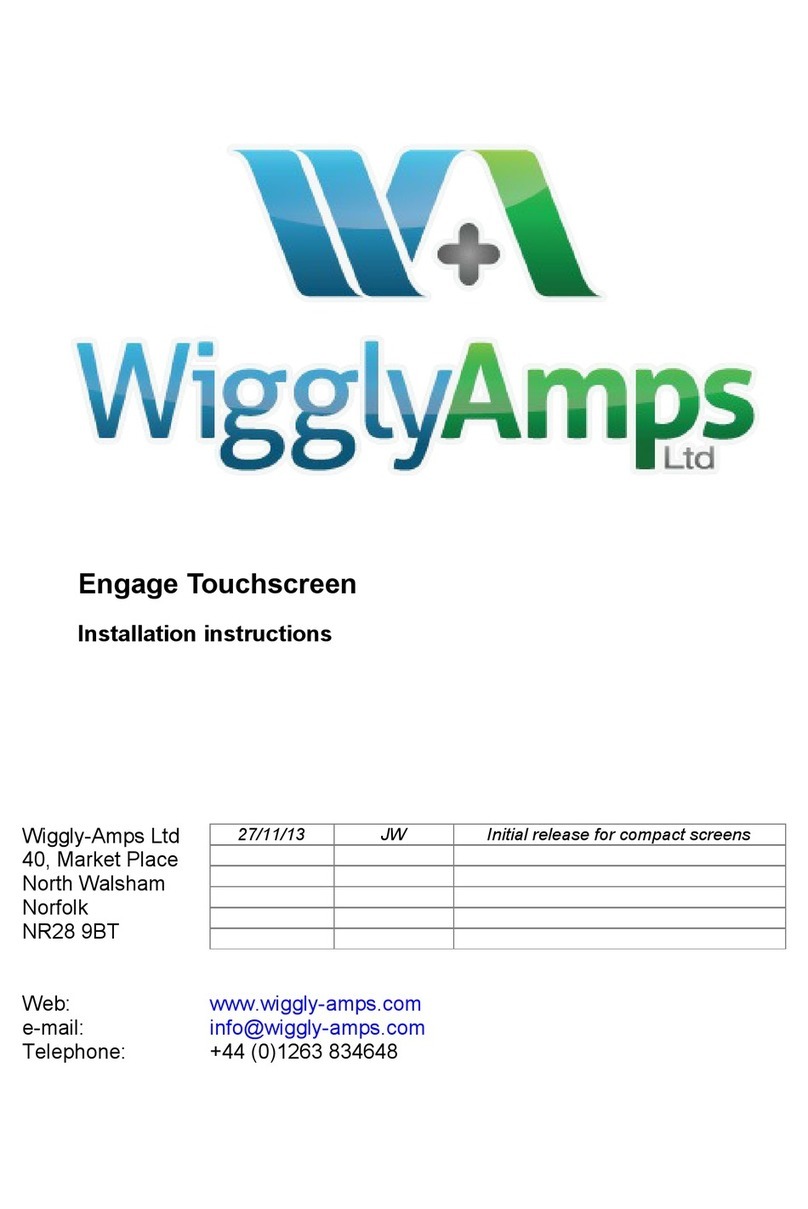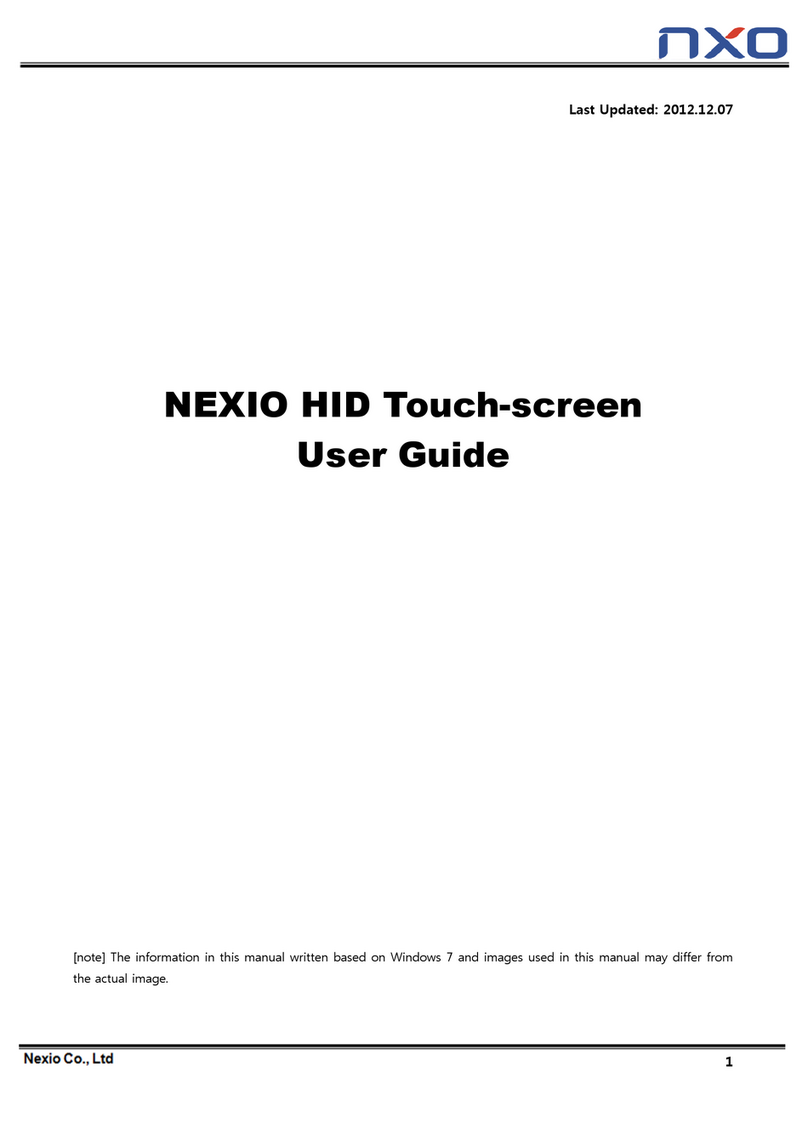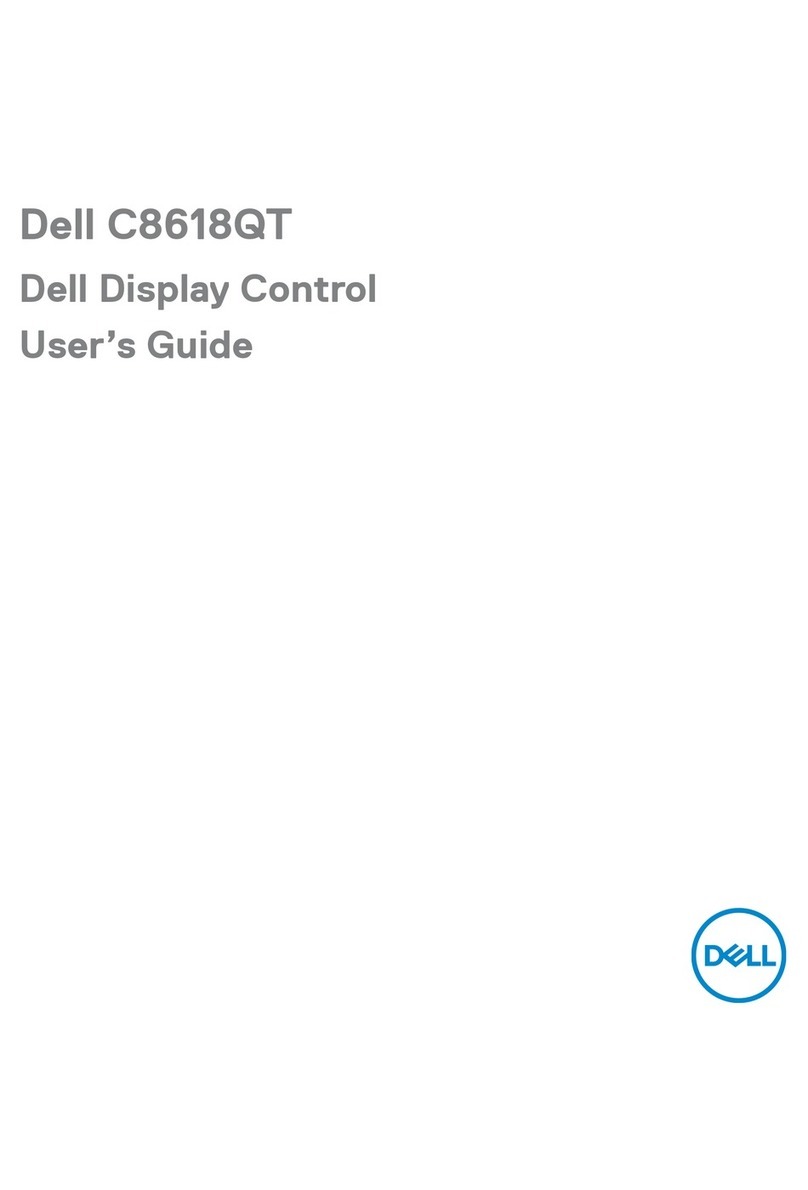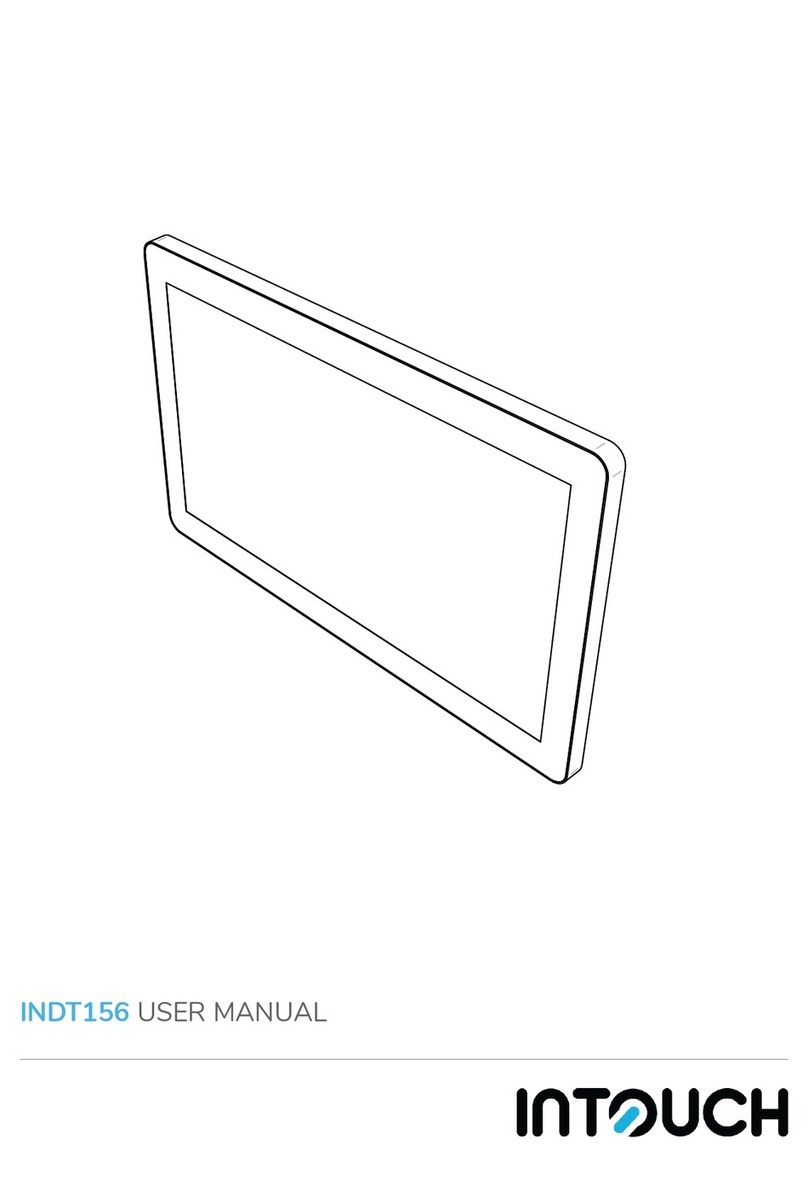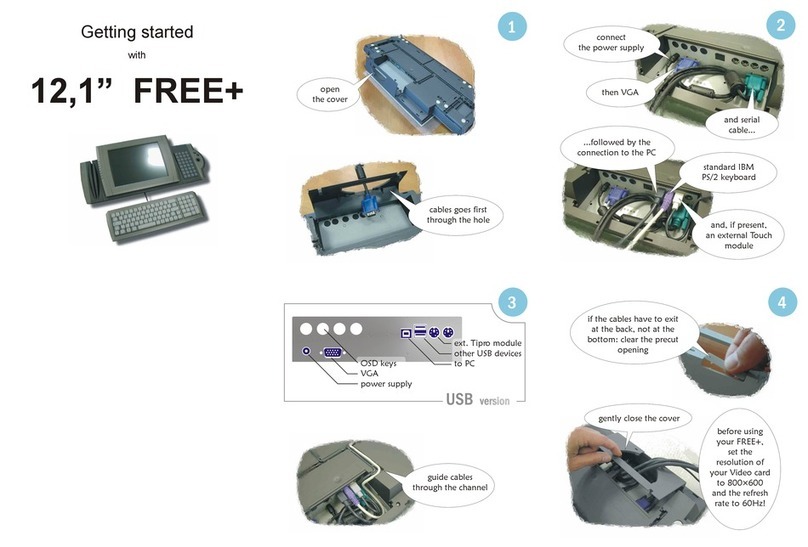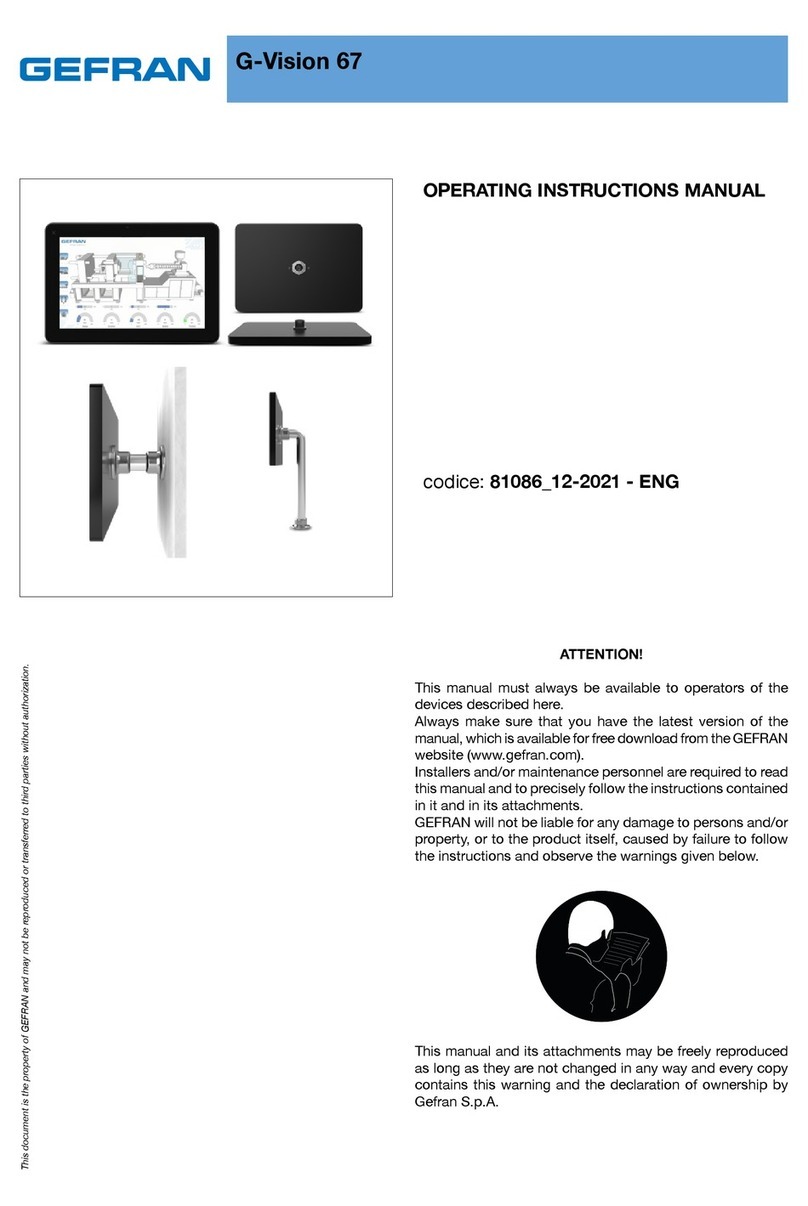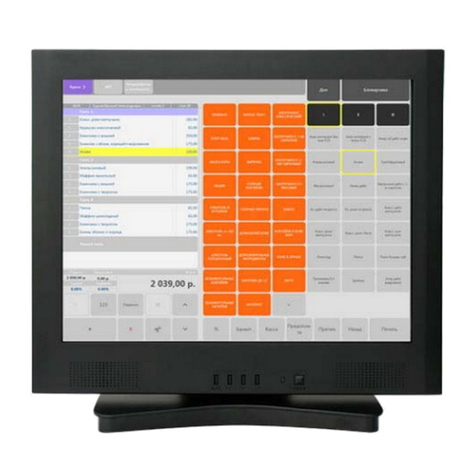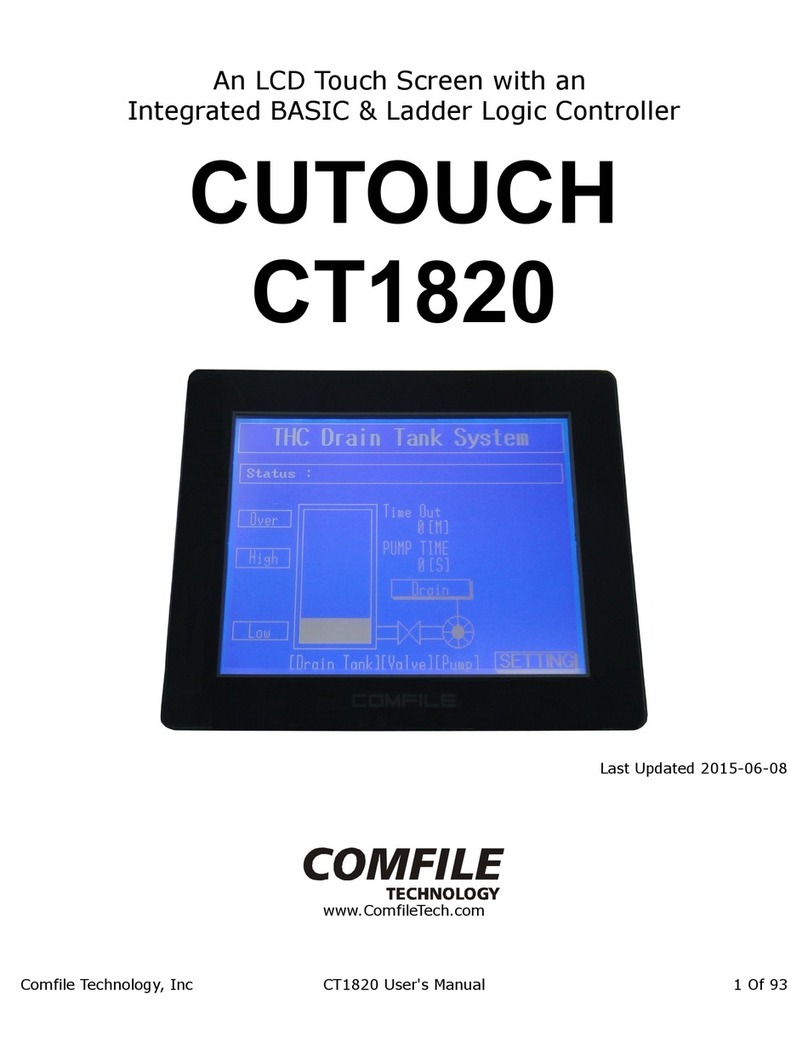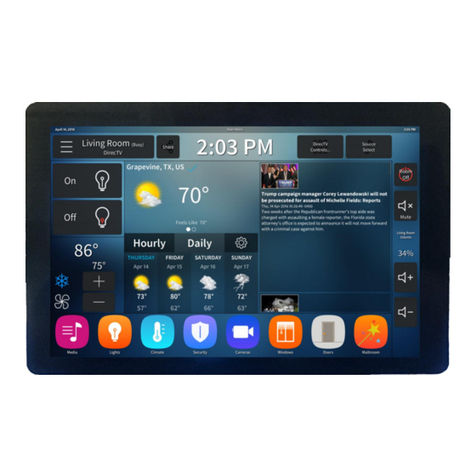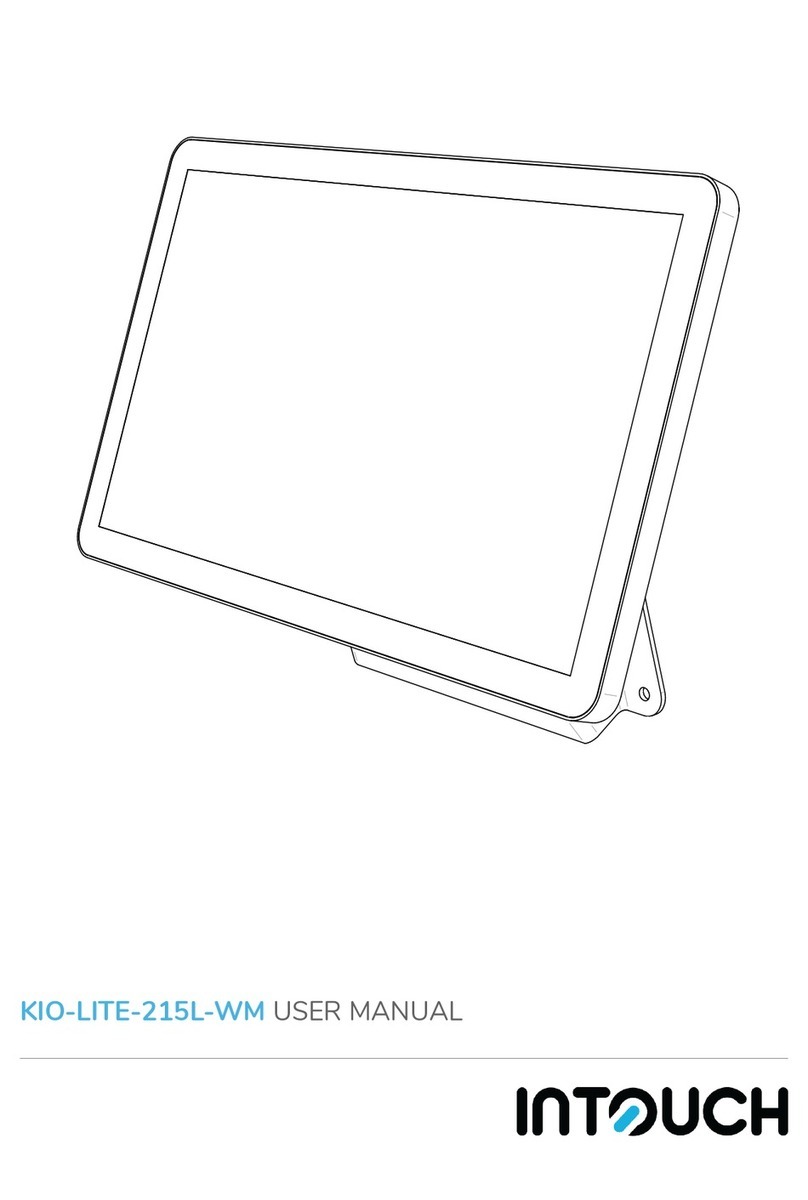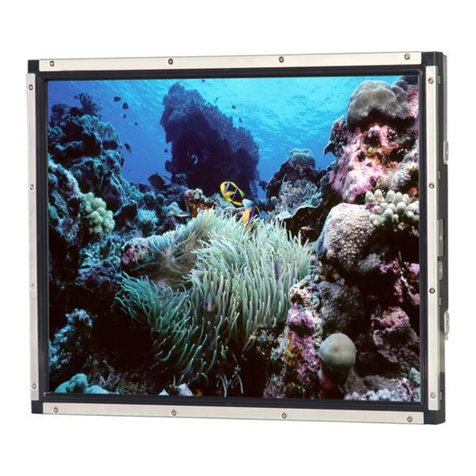
Foreword
Beijer Electronics, MAEN966
Installation manual for the EXTER series operator panels
Foreword
The EXTER sun-readable operator panel is particularly suitable for round-the-clock
use where reliable, robust and user-friendly HMI solutions are needed to maintain
operations at all hours and throughout diverse light conditions. EXTER sun-readable
provides clear and accurate information even in conditions of bright daylight glare.
All operator panels in the EXTER series are developed to satisfy the demands of hu-
man-machine communication. Built-in functions such as displaying and controlling
text, dynamic indication, time channels, alarm and recipe handling are included.
The operator panel works primarily in an object-oriented way, making it easy to un-
derstand and use. Configuration is carried out on a PC using Information Designer
configuration tool. The project can then be transferred and stored in the operator
panel itself.
Various types of automation equipment such PLCs, servos or drives can be connected
to the EXTER sun-readable operator panel. In this manual, the term “the controller”
refers to the connected equipment.
This manual explains how to install the operator panel. Please refer to the reference
manual for further information.
© Beijer Electronics AB, MAEN966, 2008-11
The information in this document is subject to change without notice and is provided as available at the time
of printing. Beijer Electronics AB reserves the right to change any information without updating this
publication. Beijer Electronics AB assumes no responsibility for any errors that may appear in this document.
Read the entire installation manual prior to installing and using this equipment.
Only qualified personnel may install, operate or repair this equipment. Beijer Electronics AB is not responsible
for modified, altered or renovated equipment.
Because the equipment has a wide range of applications, users must acquire the appropriate knowledge to use
the equipment properly in their specific applications.
Persons responsible for the application and the equipment must themselves ensure that each application is in
compliance with all relevant requirements, standards and legislation in respect to configuration and safety.
Only parts and accessories manufactured according to specifications set by Beijer Electronics AB may be used.
BEIJER ELECTRONICS AB SHALL NOT BE LIABLE TO ANYONE FOR ANY DIRECT, INDIRECT,
SPECIAL, INCIDENTAL OR CONSEQUENTIAL DAMAGES RESULTING FROM THE
INSTALLATION, USE OR REPAIR OF THIS EQUIPMENT, WHETHER ARISING IN TORT,
CONTRACT, OR OTHERWISE. BUYER'S SOLE REMEDY SHALL BE THE REPAIR,
REPLACEMENT, OR REFUND OF PURCHASE PRICE, AND THE CHOICE OF THE APPLICABLE
REMEDY SHALL BE AT THE SOLE DISCRETION OF BEIJER ELECTRONICS AB.
